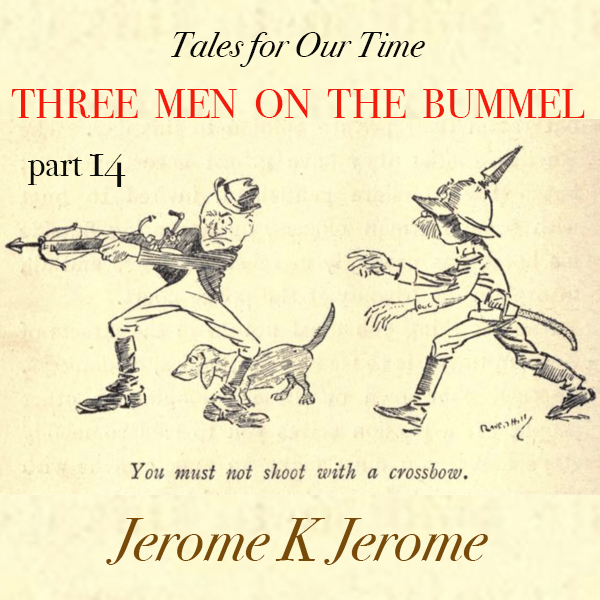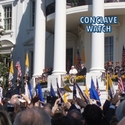Beyond The Mark Steyn Show:
Columns, poems, tales, music, movies and more from Mark and friends
Laura's Links
The New Canada

Greetings one and all and welcome to this week's edition of Laura's Links. I'll start off by riffing a little on Mark's theme of "as I said twenty years ago". My variation on that theme has been trying to explain very slooooooowly to anyone who will listen, for the past twenty or so years, that Canada is going the way of Europe...
The Mark Steyn Audio Show
Dancing with the Sauds

If you missed today's edition of Steyn's Clubland Q&A live around the planet, here's the action replay...
Clubland Q&A
Live Around the Planet: Wednesday May 14th

Mark takes questions from Steyn Club members around the planet...
Politics & Current Affairs
Diversity and Its Discontents

Steyn picks five details of the big picture...
Politics & Current Affairs
England's Police State

The winning side in the Brexit referendum is now, per Kent police, thought-crime...
Steyn's Song of the Week
Happy Birthday to You
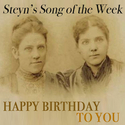
There's really only one song with which we could celebrate The Mark Steyn Club's eighth anniversary...
Rick's Flicks
Holy Mess: Anthony Quinn in The Shoes of the Fisherman
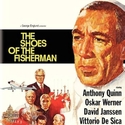
Rick McGinnis picks a papal tie-in...
On the Town
Memories of Tomorrow
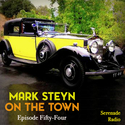
In this week's episode of Mark Steyn on the Town, we mark Golden Spike Day, enjoy songs from Texans and Tuscans, ponder a funny lady's serious turn, and remember all Frank's tomorrows.
The Mark Steyn Show
Enablers of Evil

Today's episode was filmed live on the Mark Steyn Iberian Cruise with three of our special guests: Sammy Woodhouse, Samantha Smith and Allison Pearson...
The Mark Steyn Audio Show
Kashmiri Songs
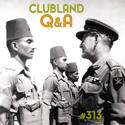
If you missed today's edition of Steyn's Clubland Q&A live around the planet, here's the action replay...
Politics & Current Affairs
Eight Speech

Today is the eighth birthday of The Mark Steyn Club, launched on May 6th 2017. In honour of the occasion, the Supreme Court of Minnesota has decided to legalise women perambulating topless through the streets...
Politics & Current Affairs
War of 1812: The Rematch

There have been significant elections in His Majesty's three senior realms this last week, and a significant post-election development in Europe, too. I'll get to most of them tomorrow, but for now I'd like to focus a little more narrowly:
On the Town
Jinns, Rosières, and Prince Bob
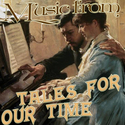
One of the most popular features of Tales for Our Time has been the music Mark chooses to accompany each story. So here, after many requests, is a sampler of the accompanying melodies from some of our tales...
On the Town
Anniversary Songs
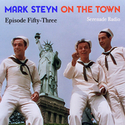
In this week's episode of Mark Steyn on the Town, we celebrate the show's first birthday with an extended outing of our Non-Stop Number Ones and a special edition of our Sinatra Sextet...
Politics & Current Affairs
Following the Science

Yesterday's government by expert is today's criminal conduct...
Politics & Current Affairs
When the Police Switch Sides

Disgraceful scenes on the streets of Montreal...
Mann vs Steyn
Mann Ordered to Pay More than Those He Sought to Destroy
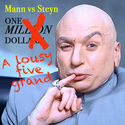
In a stunning but not unexpected ruling today, Judge Irving of the DC Superior Court has reduced the unconstitutional punitive damages jury award against Mark from one million dollars to a mere $5,000...
A Clubman's Notes
Durchgang Verboten!
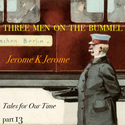
In episode thirteen of Jerome K Jerome's meandering and easily diverted bicycle ride through the Black Forest, our trio is beginning to get an understanding of what was then the fairly unusual character of German government...
A Clubman's Notes
Diversity in Carlsbad
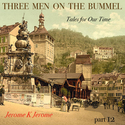
Just ahead of Episode Twelve of Three Men on the Bummel, thank you again for your kind comments about this caper and all our other Tales for Our Time...
A Clubman's Notes
I Should Cocoa
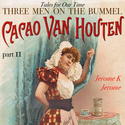
Part Eleven of our eighth-birthday Tale for Our Time - Jerome K Jerome's Three Men on the Bummel...
A Clubman's Notes
"What Makes You Think That?"
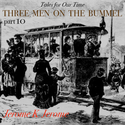
Part Ten of our current Tale for Our Time - Jerome K Jerome's lesser known sequel to his enduring comic classic Three Men in a Boat...
A Clubman's Notes
Capital Disappointment
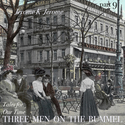
On to Part Nine of Jerome K Jerome's second very popular contribution to Tales for Our Time. In tonight's episode of Three Men on the Bummel, our intrepid trio arrive in the German capital...
A Clubman's Notes
Lessons in Language

Welcome to Part Eight of our birthday audio entertainment in Tales for Our Time. After a week of digressions, our trio finally arrive in Germany, to begin digressing more Germanically...
A Clubman's Notes
The Non-Scenic Route
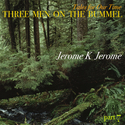
Welcome to Part Seven of our birthday audio entertainment in Tales for Our Time - Three Men on the Bummel by the master of comic digression, Jerome K Jerome...
A Clubman's Notes
Nothing Useful
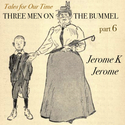
Welcome to Part Six of our birthday audio entertainment in Tales for Our Time...
A Clubman's Notes
Uncle Podger Among the Costermongers
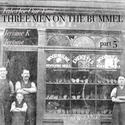
Our birthday Tale for Our Time, and the seventieth of our Steyn Club audio adventures, is Mark's serialisation of Three Men on the Bummel, Jerome K Jerome's sequel to his comic classic Three Men in a Boat. In episode five, we have a digression within a digression...
A Clubman's Notes
Rise and Shine
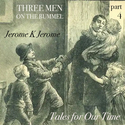
Here we go with Part Four of our brand new Tale for Our Time - my springtime serialisation of Jerome K Jerome's even more idiosyncratic sequel to Three Men in a Boat - from 1900, Three Men on the Bummel...
A Clubman's Notes
The Overhauler Cometh
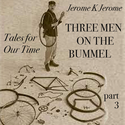
Welcome to the latest in our series of audio adventures, Tales for Our Time, and Part Three of Mark's serialisation of Three Men on the Bummel by Jerome K Jerome...
A Clubman's Notes
The Society of Other Men
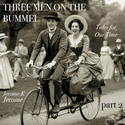
Welcome to Part Two of Three Men on the Bummel, our springtime audio adventure in Tales for Our Time...
A Clubman's Notes
Kind of a Bummel
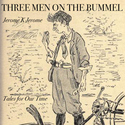
Welcome to the seventieth audio entertainment in our series Tales for Our Time...
The Mark Steyn Show
The Whole Earth Is Our Hospital...

An Easter entry to Mark's anthology of video poetry - from T S Eliot's Four Quartets...
A Clubman's Notes
Bouncing On
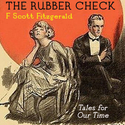
This weekend we enjoy the simplest of short stories, a tale of catastrophic ordinariness: The Rubber Check, written in 1932 by F Scott Fitzgerald...
Steyn's Song of the Week
Body and Soul
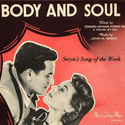
If you missed today's Serenade Radio broadcast, here's a chance to catch up via this SteynOnline premiere of one of our audio Songs of the Week...
A Clubman's Notes
When the Getting Was Good...
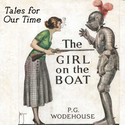
Welcome to the sixty-ninth audio adventure in our series Tales for Our Time...
Tales for Our Time
The Prisoner of Windsor

A remote fantastical kingdom far from Europe's chancelleries of power... An unpopular monarch on the eve of his coronation... A ruling class of plotters and would-be usurpers... ...and a gentleman adventurer on holiday. No, not Ruritania in the nineteenth century, but the United Kingdom in the twenty-first...


